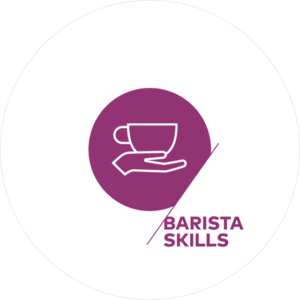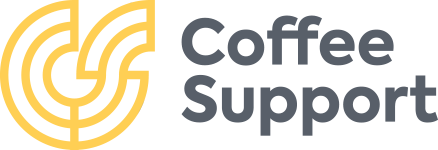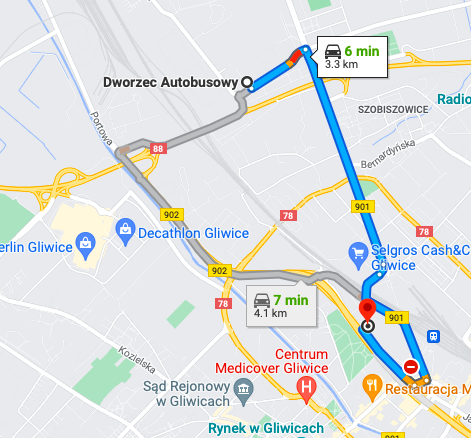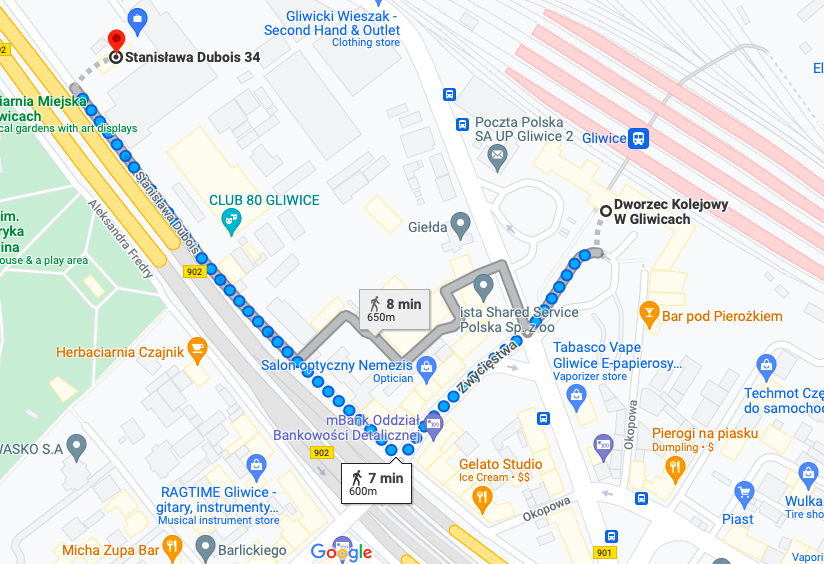
Barista Skills is training during which we focus on gaining skills related to the barista profession, the principles of running a cafe and professional customer service.
General information:
Barista Skills is a series of training courses focusing on the skills of a barista work with a grinder and a pressure espresso machine. Repeatable and correct preparation of espresso, cappuccino, americano or cafe latte as well as basic and advanced milk steaming techniques are the skills taught and improved during the courses. Training at higher levels is focused on learning the sensorics of espresso, gaining knowledge about cafe management and practicing advanced latte art techniques. Participants of the barista course will also learn the basic guidelines related to occupational hygiene and the principles of professional guest service.
Foundation level:
This barista course is intended for people who are starting their work in the coffee industry. At this level, you learn the basic and practical skills necessary for the correct use and setting of the coffee grinder and the espresso machine. The course also covers the preparation and quality control of espresso, steaming milk and the preparation of coffees such as: cafe cappuccino and cafe latte. No previous experience of working as a barista is required.
The scope of the course:
- Getting to know the basic knowledge about species, botanical varieties or methods of coffee processing.
- Basics of work organization behind the bar.
- Construction and operation of a grinder.
- Construction and operation of the pressure coffee machine.
- Exercises to set the degree of grinding coffee, dosing and distribution, techniques of tamping coffee and brewing espresso.
- Learning to steam milk and prepare basic coffees: cafe cappuccino, cafe latte, americano.
- Health and safety rules behind the bar.
- Cleaning the espresso machine, grinder and accessories.
Additional information:
- Requirements for participants of the barista course: experience is not required.
- The training ends with an online theory exam. Obtaining positive results of the exams gives the opportunity to receive the SCA certificate.
- Number of participants: 3 – 6 people.
- Duration of the course: 8 hours (a 45-minute meal break is planned during the course).
- Course price without SCA certificate: PLN 890 gross per person.
- SCA-certified course and “on-line” exam: PLN 575 gross per person.
Intermediate level:
The training allows you to deepen your knowledge about coffee, its species, and botanical varieties. Develops sensory skills regarding espresso, practical skills to control its quality, and others acquired at the basic level. Participants learn about the composition of milk, advanced techniques of steaming it, perfect the basic latte art patterns, and learn about the difference between frothing cow’s milk and plant-based drinks. They get to know the standards of guest service in-depth and gain business knowledge about the coffee industry. The course is intended for people who have already worked as baristas for at least six months.
The scope of the course:
- Getting to know the detailed information related to the origin of coffee, its botanical varieties, and learning to distinguish coffee according to its origin, treatment or roasting.
- Learning basic information about how the method of roasting coffee affects its physico-chemical properties, coffee sensors, and extractivity.
- Principles of proper organization and ergonomics of work in a cafe with an emphasis on optimization, efficiency, quality and speed of the barista’s work.
- Learning the differences in the preparation of espresso depending on the type and quality of the coffee beans used (type, degree of roast, freshness).
- Improving the technique of distributing and tamping coffee with the use of accessories that facilitate the control of the quality and repeatability of espresso preparation.
- Espresso sensorics: the ability to determine the quality of individual espresso sensory attributes.
- Milk: composition, structure, advanced techniques of steaming cow and vegetable milk, quality control.
- Practicing and perfecting basic latte art patterns: heart, rosette and / or tulip.
- Hygiene and work safety behind the bar: personal hygiene, standardization of processes related to GHP, GMP and HAACP systems.
- Customer service in a cafe: building a menu, atmosphere in a cafe, improving communication techniques and standardizing order fulfillment and behavior in contact with cafe guests.
- Learning the basics of financial management in a coffee shop.
Additional information:
- Requirements for participants: recommended Barista Skills course at the basic level. The ability to make basic latte art patterns – heart, rosette, tulip. At least 6 months of work in a café.
- The training ends with an online practical and theoretical exam. Obtaining positive results of the exams gives the opportunity to receive the SCA certificate.
- The number of participants: 3 to 4 people.
- Duration of the course: two days, 8 hours each (a 45-minute meal break is planned for each day of the course).
- Course price without SCA certificate: PLN 1,990 gross per person.
- Price of the SCA-certified course: PLN 2,565 gross per person.
Professional level:
The training is suitable for baristas who have extensive work experience and who have completed the course and passed the exam at the intermediate level of the SCA Coffee Skills Program. At this level, knowledge about coffee and the preparation of espresso-based drinks is explored from both a scientific and business perspective. The course is intended for people who want to scientifically explore their knowledge and skills related to the quality of prepared coffees and improve the service of guests in the cafe.
The scope of the course:
- Getting to know the detailed information related to the difference in the density and size of coffee beans, different styles of a specific type of coffee processing, style of roasting and freshness.
- Gaining knowledge about the chemical structure of coffee and how its ingredients affect the sensor of espresso.
- Acquiring the ability to create mixtures of various beans depending on their origin, the style of their roasting and the target sensory profile of an espresso.
- Principles of proper organization and ergonomics of work in a cafe with an emphasis on optimization, efficiency, quality, and speed of the barista’s work.
- Learning the differences in the quality of an espresso depending on the type and structure of the burrs in the grinder, the grinding speed of the coffee, etc.
- Learning to use advanced espresso quality control tools such as a refractometer and conductometer.
- Exercises in the field of espresso sensors: how changing the pressure or temperature of espresso extraction affects the quality of its individual sensory attributes.
- Milk: types of milk processing, chemical aspects of cow’s milk components behavior (lipolysis, proteolysis, protein denaturation, enzymatic processes occurring in milk) and their influence on the taste and quality of drinks prepared on the basis of milk and espresso.
- Practicing and improving the quality of milk foam and latte art patterns: heart, rosette, tulip, multi-patterns.
- Customer service in a cafe: creating and designing a menu (basic and seasonal), atmosphere in a cafe, improving communication techniques and creating tools to measure the level of customer satisfaction and tools for building long-term relationships.
- Cafe management: procedures for repairs and inspections of equipment, procedures for replacing burrs, gaskets and water filtration system, water quality control and warehouse management skills.
- Coffee shop finance management: food cost and beverage cost analysis, margin, mark-up and break-even point of the coffee shop, policy of minimizing losses and abuses, managing the pricing policy of products.
Additional information:
- Requirements for participants: Barista Skills course at intermediate level required.
- The training ends with a theoretical and practical exam. Obtaining positive results of the exams gives the opportunity to receive the SCA certificate.
- Number of participants: 3 to 4 people.
- Duration of the course: three days, 8 hours each (a 45-minute meal break is planned for each day of the course).
- Course price without SCA certificates: PLN 3,200 gross per person.
- Price of the SCA-certified course: PLN 3775 gross per person.
Foundation level
This barista course is intended for people who are starting their work in the coffee industry. At this level, you learn the basic and practical skills necessary for the correct use and setting of the coffee grinder and the espresso machine. The course also covers the preparation and quality control of espresso, steaming milk, and the preparation of coffees such as cafe cappuccino and cafe latte. No previous experience of working as a barista is required.
The scope of the course:
- Getting to know the basic knowledge about species, botanical varieties or methods of coffee processing.
- Basics of work organization behind the bar.
- Construction and operation of a grinder.
- Construction and operation of the pressure coffee machine.
- Exercises to set the degree of grinding coffee, dosing and distribution, techniques of tamping coffee and brewing espresso.
- Learning to steam milk and prepare basic coffees: cafe cappuccino, cafe latte, americano.
- Health and safety rules behind the bar.
- Cleaning the espresso machine, grinder, and accessories.
Additional information:
- Requirements for participants of the barista course: experience is not required.
- The training ends with an online theory exam. Obtaining positive results of the exams gives the opportunity to receive the SCA certificate.
- The number of participants: 3 – 6 people.
- Duration of the course: 8 hours (a 45-minute meal break is planned during the course).
- Course price without SCA certificate: PLN 790 gross per person.
- The price of the SCA-certified course: PLN 990 gross per person.
Intermediate level:
The training allows you to deepen your knowledge about coffee, its species, and botanical varieties. Develops sensory skills regarding espresso, practical skills to control its quality, and others acquired at the basic level. Participants learn about the composition of milk, advanced techniques of steaming it, perfect the basic latte art patterns, and learn about the difference between frothing cow’s milk and plant-based drinks. They get to know the standards of guest service in-depth and gain business knowledge about the coffee industry. The course is intended for people who have already worked as baristas for at least six months.
The scope of the course:
- Getting to know the detailed information related to the origin of coffee, its botanical varieties, and learning to distinguish coffee according to its origin, treatment or roasting.
- Learning basic information about how the method of roasting coffee affects its physico-chemical properties, coffee sensors, and extractivity.
- Principles of proper organization and ergonomics of work in a cafe with an emphasis on optimization, efficiency, quality and speed of the barista’s work.
- Learning the differences in the preparation of espresso depending on the type and quality of the coffee beans used (type, degree of roast, freshness).
- Improving the technique of distributing and tamping coffee with the use of accessories that facilitate the control of the quality and repeatability of espresso preparation.
- Espresso sensorics: the ability to determine the quality of individual espresso sensory attributes.
- Milk: composition, structure, advanced techniques of steaming cow and vegetable milk, quality control.
- Practicing and perfecting basic latte art patterns: heart, rosette and / or tulip.
- Hygiene and work safety behind the bar: personal hygiene, standardization of processes related to GHP, GMP and HAACP systems.
- Customer service in a cafe: building a menu, atmosphere in a cafe, improving communication techniques and standardizing order fulfillment and behavior in contact with cafe guests.
- Learning the basics of financial management in a coffee shop.
Additional information:
- Requirements for participants: recommended Barista Skills course at the basic level. The ability to make basic latte art patterns – heart, rosette, tulip. At least 6 months of work in a café.
- The training ends with an online practical and theoretical exam. Obtaining positive results of the exams gives the opportunity to receive the SCA certificate.
- The number of participants: 3 to 4 people.
- Duration of the course: two days, 8 hours each (a 45-minute meal break is planned for each day of the course).
- Course price without SCA certificate: PLN 1,900 gross per person.
- Price of the SCA-certified course (only for SCA members): PLN 2,465 gross per person. *
- The price of the SCA-certified course for people from outside the SCA association: PLN 2,920 gross.
* certificates are priced only for SCA members with a currently paid membership fee.
Professional level:
The training is suitable for baristas who have extensive work experience and who have completed the course and passed the exam at the intermediate level of the SCA Coffee Skills Program. At this level, knowledge about coffee and the preparation of espresso-based drinks is explored from both a scientific and business perspective. The course is intended for people who want to scientifically explore their knowledge and skills related to the quality of prepared coffees and improve the service of guests in the cafe.
The scope of the course:
- Getting to know the detailed information related to the difference in the density and size of coffee beans, different styles of a specific type of coffee processing, style of roasting and freshness.
- Gaining knowledge about the chemical structure of coffee and how its ingredients affect the sensor of espresso.
- Acquiring the ability to create mixtures of various beans depending on their origin, the style of their roasting and the target sensory profile of an espresso.
- Principles of proper organization and ergonomics of work in a cafe with an emphasis on optimization, efficiency, quality, and speed of the barista’s work.
- Learning the differences in the quality of an espresso depending on the type and structure of the burrs in the grinder, the grinding speed of the coffee, etc.
- Learning to use advanced espresso quality control tools such as a refractometer and conductometer.
- Exercises in the field of espresso sensors: how changing the pressure or temperature of espresso extraction affects the quality of its individual sensory attributes.
- Milk: types of milk processing, chemical aspects of cow’s milk components behavior (lipolysis, proteolysis, protein denaturation, enzymatic processes occurring in milk) and their influence on the taste and quality of drinks prepared on the basis of milk and espresso.
- Practicing and improving the quality of milk foam and latte art patterns: heart, rosette, tulip, multi-patterns.
- Customer service in a cafe: creating and designing a menu (basic and seasonal), atmosphere in a cafe, improving communication techniques and creating tools to measure the level of customer satisfaction and tools for building long-term relationships.
- Cafe management: procedures for repairs and inspections of equipment, procedures for replacing burrs, gaskets and water filtration system, water quality control and warehouse management skills.
- Coffee shop finance management: food cost and beverage cost analysis, margin, mark-up and break-even point of the coffee shop, policy of minimizing losses and abuses, managing the pricing policy of products.
Additional information:
- Requirements for participants: Barista Skills course at the intermediate level required.
- The training ends with a theoretical and practical exam. Obtaining positive results of the exams gives the opportunity to receive the SCA certificate.
- The number of participants: 3 to 4 people.
- Duration of the course: three days, 8 hours each (a 45-minute meal break is planned for each day of the course).
- Course price without SCA certificates: PLN 3,000 gross per person.
- Price of the SCA-certified course (only for SCA members): PLN 4,020 gross per person. *
- The price of the SCA-certified course for people from outside the SCA association: PLN 4,530 gross.
* certificates are priced only for SCA members with a currently paid membership fee.




